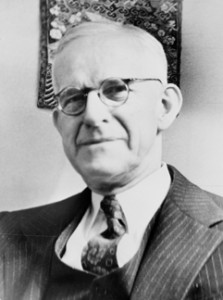A Quote by Horace Mann
We conceive of immortality as having a beginning, but no end; but we conceive of eternity as having neither beginning nor end. Hence it is proper to speak of eternity as the attribute of God, but of immortality as the attribute of man.
Related Quotes
The only idea man can affix to the name of God, is that of a first cause, the cause of all things. And, incomprehensibly difficult as it is for a man to conceive what a first cause is, he arrives at the belief of it, from the tenfold greater difficulty of disbelieving it. It is difficult beyond description to conceive that space can have no end; but it is more difficult to conceive an end. It is difficult beyond the power of man to conceive an eternal duration of what we call time; but it is more impossible to conceive a time when there shall be no time.
Man no longer lives in the beginning--he has lost the beginning. Now he finds he is in the middle, knowing neither the end nor the beginning, and yet knowing that he is in the middle, coming from the beginning and going towards the end. He sees that his life is determined by these two facets, of which he knows only that he does not know them
I cannot conceive of a God who rewards and punishes his creatures, or has a will of the kind that we experience in ourselves. Neither can I nor would I want to conceive of an individual that survives his physical death; let feeble souls, from fear or absurd egoism, cherish such thoughts. I am satisfied with the mystery of the eternity of life and with the awareness and a glimpse of the marvelous structure of the existing world, together with the devoted striving to comprehend a portion, be it ever so tiny, of the Reason that manifests itself in nature.
As there is not in human observation proper means for measuring the waste of land upon the globe, it is hence inferred, that we cannot estimate the duration of what we see at present, nor calculate the period at which it had begun; so that, with respect to human observation, this world has neither a beginning nor an end.
Through concentration we become one-pointed and through meditation we expand our consciousness into the Vast. But in contemplation we grow into the Vast itself. We have seen the Truth. We have felt the Truth. But the most important thing is to grow into the Truth and become totally one with the Truth. If we are concentrating on God, we may feel God right in front of us or besides us. When we are meditating, we are bound to feel Infinity, Eternity, Immortality within us. But when we are contemplating, we will see that we ourselves are Infinity, Eternity, Immortality.
If Christianity cannot present evidence that the soul is immortal, then they have nothing to offer the masses, eternity in heaven with God or hold over their heads suffering forever in hell. They need the immortality of the soul. I did my research, it's not in the Bible, so what do they do? They relied on Judaism, which has always believed in the immortality of the soul. I start checking on that and I look in the Judaica Encyclopedia and what do I find? Their remark that Judaism probably got the immortality of the soul from the Greeks, so I go back further, where it all started with Plato.





































